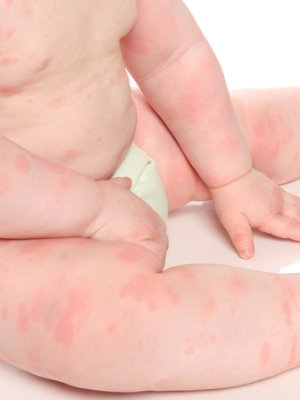ANAPHYLACTIC SHOCK

We believe breast milk is the best food for infants. When in consultation with their healthcare professional, mothers and families find that optimal breastfeeding is not possible due to their infant’s medical condition, formulas for special medical purposes play a vital role in providing essential nutrients to infants. We have a global commitment to market breast-milk substitutes responsibly.
Anaphylactic shock is a severe, immediate, allergic reaction, which can affect many organ systems. It is a serious and potentially life threatening symptom.
When anaphylactic shock is most severe, a baby may experience airway narrowing and swelling and a drop in blood pressure making it difficult to breathe. Anaphylactic shock happens most often in children and although it is not common in babies, it is not rare.
Could it be Cow’s Milk Protein Allergy?
An allergic reaction to food, e.g. Cow’s Milk Protein Allergy (CMPA) is one of the most common triggers of anaphylactic shock in babies. Other triggers include insect stings, medications and latex. Symptoms can occur very suddenly and get worse very quickly.
If you suspect your baby has had an anaphylactic shock, you should contact the emergency services and take your baby to the hospital immediately.

OTHER SYMPTOMS OF COW'S MILK PROTEIN ALLERGY
IMPORTANT NOTICE: Mothers should be encouraged to continue breastfeeding even when their babies have cow’s milk protein allergy. This usually requires qualified dietary counseling to completely exclude all sources of cow’s milk protein from the mothers’ diet.If a decision to use a special formula intended for infants is taken, it is important to follow the instructions on the label. Unboiled water, unboiled bottles or incorrect dilution can make babies ill. Incorrect storage, handling, preparation and feeding can eventually lead to adverse effects on the health of babies.Formula for special medical purposes intended for infants must be used under medical supervision.















